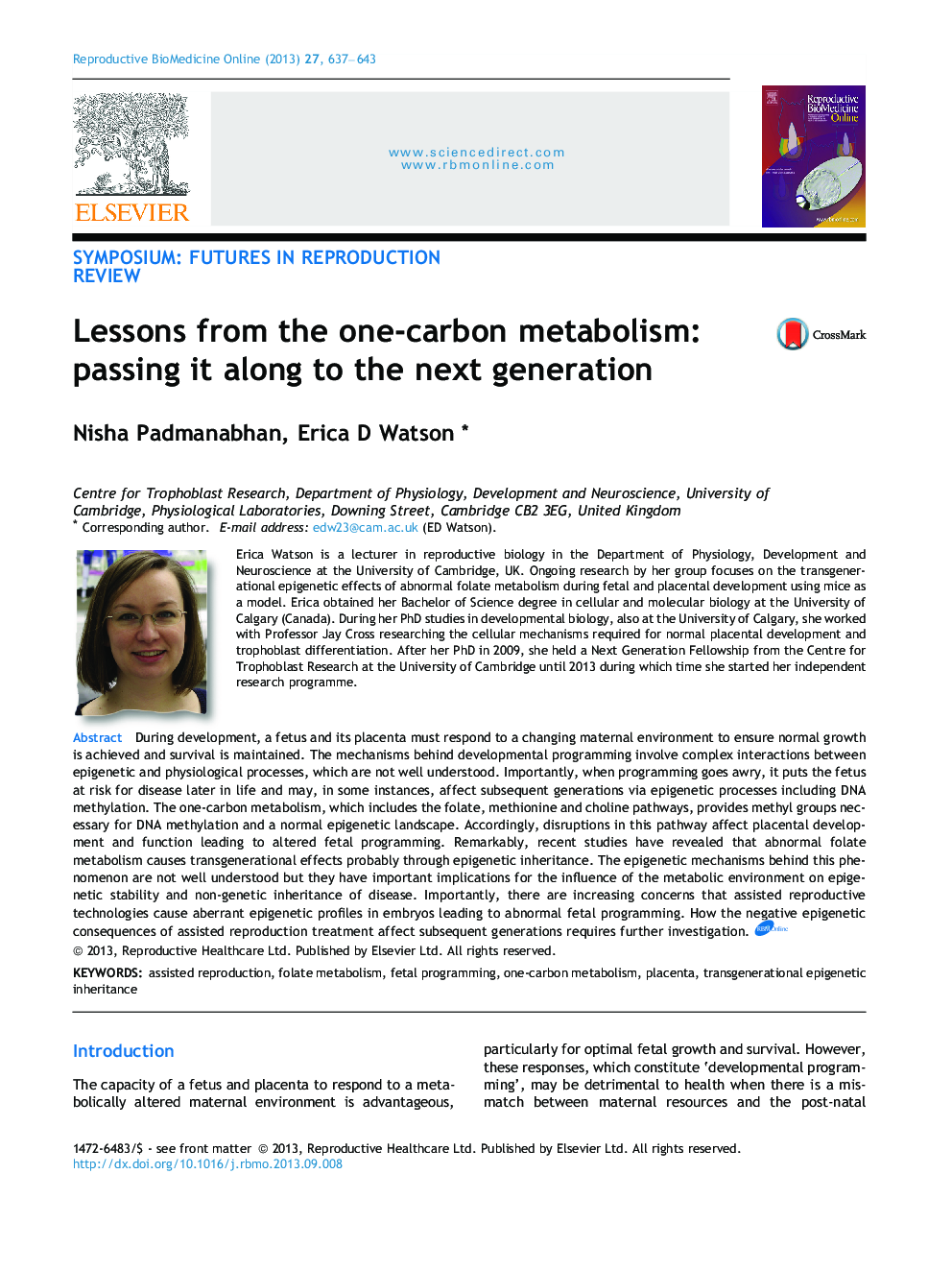| Article ID | Journal | Published Year | Pages | File Type |
|---|---|---|---|---|
| 3970218 | Reproductive BioMedicine Online | 2013 | 7 Pages |
During development, a fetus and its placenta must respond to a changing maternal environment to ensure normal growth is achieved and survival is maintained. The mechanisms behind developmental programming involve complex interactions between epigenetic and physiological processes, which are not well understood. Importantly, when programming goes awry, it puts the fetus at risk for disease later in life and may, in some instances, affect subsequent generations via epigenetic processes including DNA methylation. The one-carbon metabolism, which includes the folate, methionine and choline pathways, provides methyl groups necessary for DNA methylation and a normal epigenetic landscape. Accordingly, disruptions in this pathway affect placental development and function leading to altered fetal programming. Remarkably, recent studies have revealed that abnormal folate metabolism causes transgenerational effects probably through epigenetic inheritance. The epigenetic mechanisms behind this phenomenon are not well understood but they have important implications for the influence of the metabolic environment on epigenetic stability and non-genetic inheritance of disease. Importantly, there are increasing concerns that assisted reproductive technologies cause aberrant epigenetic profiles in embryos leading to abnormal fetal programming. How the negative epigenetic consequences of assisted reproduction treatment affect subsequent generations requires further investigation.It is well established that the food we eat and the environment that we are exposed to as a baby in our mother’s womb, after birth and into adulthood affect our susceptibility to disease. Remarkably, evidence indicates that the effects of these environmental stressors may also be detrimental to the development of our children and our grandchildren, even when they are not exposed to the stressor. Research is ongoing to understand how these abnormalities are transmitted between generations through non-genetic means. Epigenetic mechanisms likely cause this phenomenon. Epigenetic control of gene expression involves molecules that bind to DNA and regulate whether a gene is ‘on’ or ‘off’. The specific combination of these epigenetic marks throughout the genome determines what group of genes is expressed and, therefore, a cell’s identity. Between each generation, these epigenetic signatures are ‘wiped clean’ or reprogrammed in the spermatozoa and eggs. If these epigenetic marks are dysregulated and/or reprogramming goes awry, abnormal epigenetic patterns might be inherited by the next generation. One study in mice has found that a defect in the metabolism of folate (folic acid), a vitamin important for normal fetal development, causes detrimental effects on development of its grandchildren and even great grandchildren, which may be attributed to inheritance of defective epigenetic marks. Importantly, some embryos generated by assisted reproduction treatment also have abnormal epigenetic profiles. Therefore, care must be taken to ensure that proper programming occurs so aberrant epigenetic changes are not inherited by subsequent generations, ultimately affecting their disease susceptibility.
